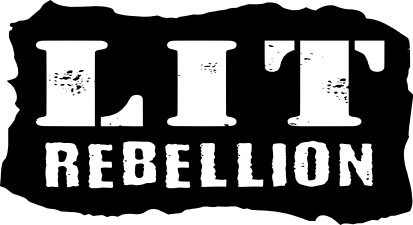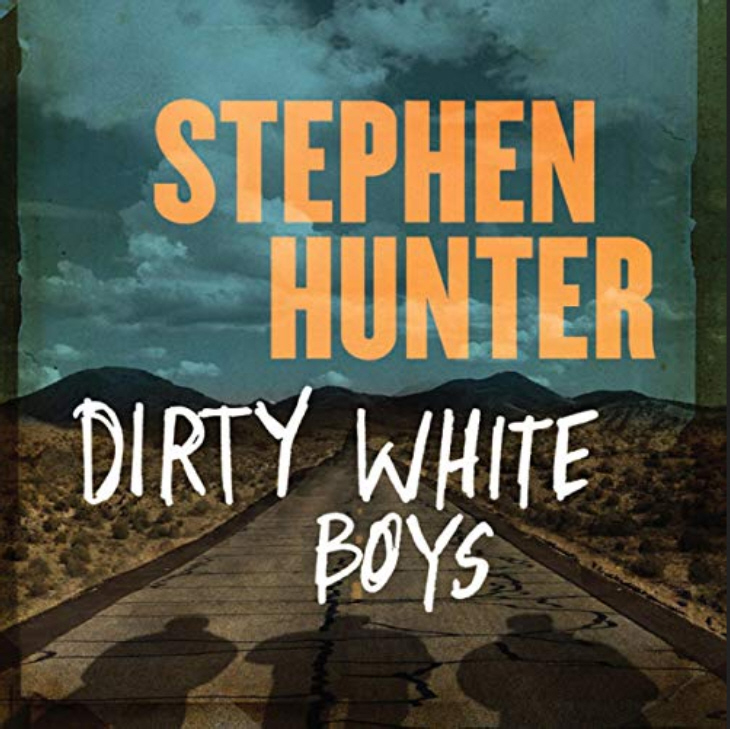I haven’t read every Stephen Hunter novel, but I’ve dug into every one I’ve come across while perusing the book sections of second-hand stores, and as near as I can tell the 1994 crime thriller Dirty White Boys is Hunter’s masterpiece. In terms of overall quality and pure pulp-fiction glory, the book easily outshines everything else I’ve seen from this author. His only other remarkable book, again based on my imperfect knowledge of his work, is Pale Horse Coming—the second of a four-part series featuring nearly super-human World War II vet Earl Swagger—in which Hunter makes a story premise lifted right out of a grade-school cops & robbers game into something actually readable and compelling.
Going into this read, you should know that, despite hitting the scene a decade or three after the golden era of pulp, Hunter is an unapologetic, fuck-your-highbrow-literature, pulp novelist. He may be the ultimate pulp novelist. He writes cinematic, lurid, outrageous, sometimes downright absurd stories that, at their best, keep you begging for more even when you know your intelligence is being insulted. In fact, Hunter is practically an arrested development case; you imagine him as a somewhat weird kid trapped in an adult body, spooling out fantastic scenarios that most people would be ashamed to admit they ever entertained. But that’s what makes him great. The aforementioned Pale Horse Coming, for example, climaxes with the protagonist assembling a strikeforce of real-life, WWII-era gunslinger-celebrities, among them Audie Murphy and Ed McGivern, to rain hell down on a good-old-boy-run gulag secreted away in a Mississippi swamp. Retarded? Yes. Made fun as hell by Hunter? Also yes.
Hunter’s Dirty White Boys, however, is in a class of its own. Hunter doesn’t just make it work, he sears his characters and scenes into your memory. Let’s start where you have to start if you’re going to discuss this book: with what is certainly the ballsiest opening line that any major publisher ever allowed to be served up to a mainstream audience.
Three men in McAlester State Penitentiary had larger penises than Lamar Pye, but all were black and therefore, by Lamar’s own figuring, hardly human at all.
In only the second paragraph, after Hunter spends a few sentences spieling about Lamar’s penis, we get a rundown of the con’s relationship with the prison’s LGBTQ community.
… the fags knew to stay away and could only dream of him in private. Lamar wasn’t a fag, although, when the spirit moved him, he was a buttfucker. He wasn’t a boss con’s fuckboy, either, or a punk, or a bitch or a mary or a snitch, and he carried a simple message in the graceful economy of his movements: to fuck with me is to fuck with death itself.
There is, of course, a little wink from Hunter with his descriptions and references. He knows that you know what he’s up to. But he also keeps a straight face, and by so doing allows you to take him at his word and keep your disbelief in a state of suspension.
Premise-wise, Dirty White Boys is the tale of a prison break led by Lamar Pye, a sort of modern-day Viking marauder, who has defied the prison’s white gang, the Dirty White Boys, and thus become a marked man—which is why the prison break is necessary. Accompanying Lamar in his escape is Odell, his deformed, mentally challenged, monstrously powerful cousin, and an effete con named Richard who has endeared himself to Lamar through his ability to produce pencil drawings of large-breasted women.
Pitted against Lamar, Odell, Richard, and soon Richard’s prison penpal, Ruta Beth—whom Lamar claims as his woman upon their meeting—is a stoic, middle-aged state trooper named Bud Pewtie, who is nothing more or less than a literary rendering of John Wayne. In the course of tracking Lamar and Co., Bud and his young partner, Ted, wind up in one of the novel’s many spectacular shootouts, and the young partner ends up dead, while Bud ends up presumed dead, but as it turns out, only shot with birdshot. This outcome is convenient for both the book’s plot—since a maimed Bud is now honor-bound to track down his partner’s killers—and for Bud, who has been carrying on an affair with Ted’s wife.
And so we have our novel: a gory, vulgar, relentless tale of degenerate killers on the run and a flawed hero pursuing them. In writing it, as in all of his work (that I’ve delved into), Hunter is waging his own little war against political correctness and liberal sensibilities, which even when the book was first published, had become obnoxious to the public at large.
Ultimately, in fact, all of Hunter’s work centers on two themes that the PC crowd hates: male honor and firearms. The male-honor theme is developed through stories of hard men making hard choices, and the firearms theme is developed through those men’s inevitable fascination with, and analysis of, guns.
It’s doubtful that Random House, the publisher of Dirty White Boys, would allow the book to get into print today. At least in the form it did. A modern editor would probably send the manuscript back to Hunter, urging the author to insert an empowered woman, a noble and endearing homosexual, and/or an African-American tech wizard among the main players, and to work a moral message into the plot about the evils of racism, sexism, and/or homophobia, and the valorousness of embracing the opposite of those things.
But as it stands, Dirty White Boys is a refreshingly offensive and wildly entertaining book, the like of which we seldom see in the twenty-first century.



This review gives the reader a great idea of what the book is like – and whether it should go on your reading list depends on how hardcore you like your pulp fiction.
Definitely the ballsiest opening line ever lol.
This post is a fantastic review of Stephen Hunter’s novel “Dirty White Boys”. Your enthusiasm and appreciation for Hunter’s work is evident in your writing and it is clear that you have a deep understanding of his writing style and the themes he explores in his novels. Your analysis of the characters, plot, and themes in the book is engaging and informative. I appreciate the detail and care you’ve taken in describing the elements of the book that make it such a great read. Your comparison to other works by Hunter and the way you contextualize it in the broader scope of crime fiction is insightful. I’m definitely going to check out this book and I’m looking forward to reading more of your reviews in the future.
Thanks, Preston!